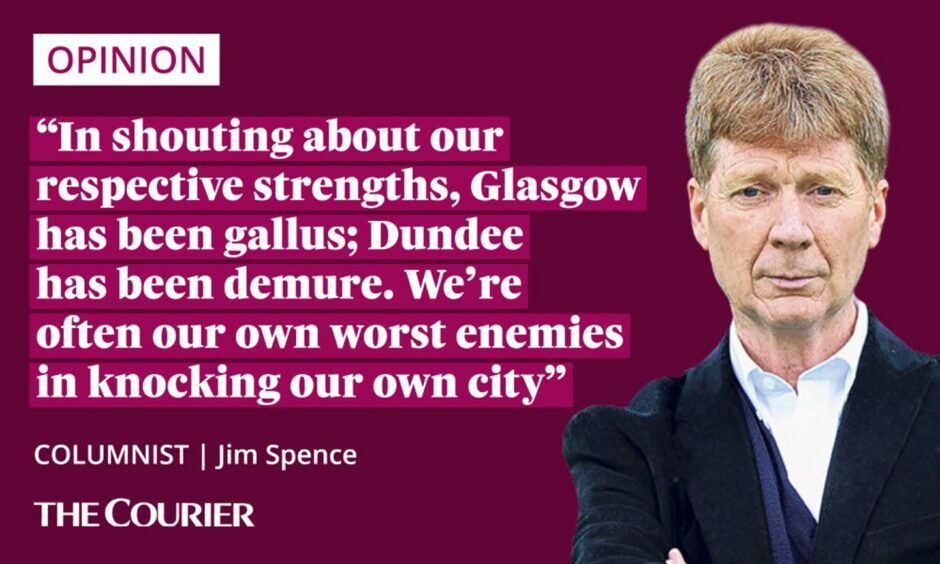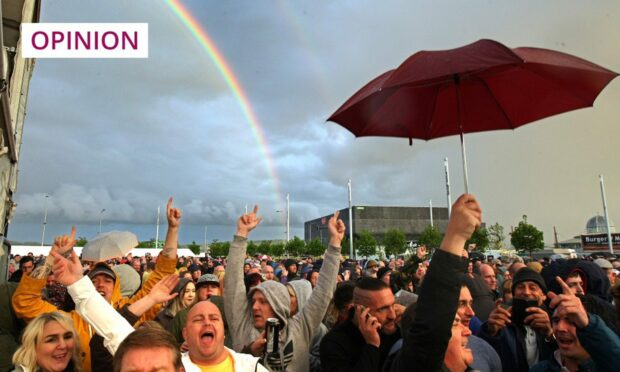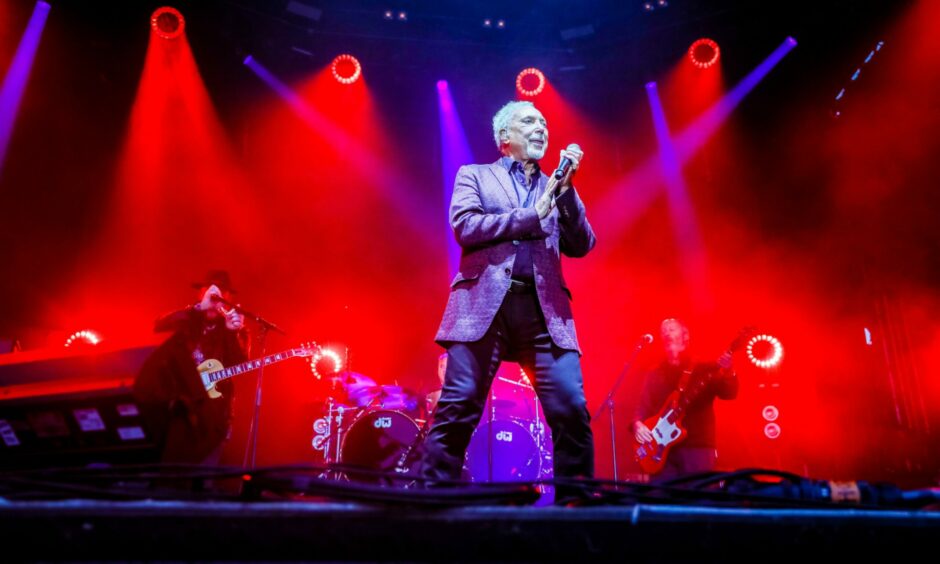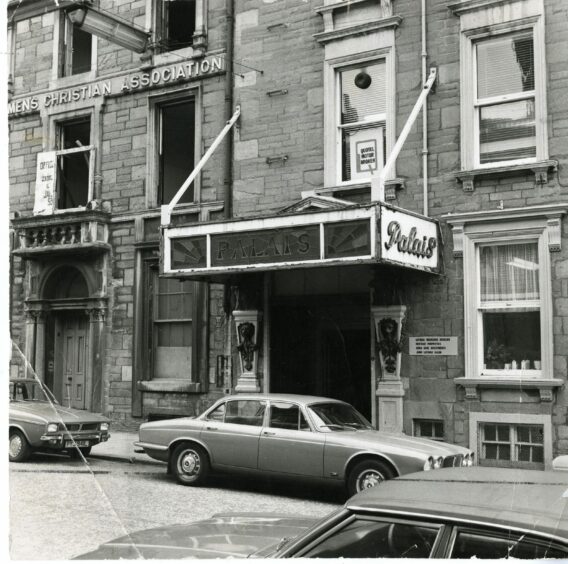Dundee urgently needs a major concert venue in our next step of rebooting the city and adding to our growing reputation as the place to be.
Plans outlined earlier in the year for a new 10,000-capacity venue would be an enormous boost financially and psychologically.
The Caird Hall at one time had a capacity of 3,300 and was a match for any music venue in Scotland including the famed Apollo in Glasgow and the Usher Hall in Edinburgh.
It’s hosted in its glory days the top names in the business including The Beatles, The Rolling Stones, Led Zeppelin (twice) David Bowie, Deep Purple, Kasabian, Fleetwood Mac, Status Quo, AC/DC, and many others.
However in a modern world giant arenas like P&J Live in Aberdeen with a 15,000 capacity and The Hydro in Glasgow catering for 13,000 have turned concert-going on its head.

There have been some great concerts at Slessor Gardens like Tom Jones, Paloma Faith, the Stereophonics, and Simply Red.
But an outdoor venue – even one which can accommodate around 11,000 – has its limitations of weather, traffic restrictions, and the comfort expectations of fans.
A new indoor venue would be a huge lift to the city bringing money into our own economy from locals who currently have to travel to see top acts.
And it would attract big numbers from elsewhere lifting Dundee hotels, pubs, restaurants and shops.
It would be another giant step in reinventing the city and our reputation.
Dundee dunt is over – bring on big venues
There’s a myth that’s taken root that Dundee has always been Scotland’s forgotten city. But that’s utter guff.
For a wee while we undoubtedly slipped into a lull where our confidence had taken a dunt.
But we’re back firing on all cylinders and building a new venue to attract the best in the music business is a logical and confident next step.
Historically we had more dance halls and cinemas than any city in Scotland, and as recently as 1971 our population was over 182,000 making it Scotland’s third biggest city, outstripping Aberdeen by a couple of hundred souls.
A recent piece in the Washington Times paid homage to the city’s industrial history and resilience.
And we’ve been featuring in trendy magazines and newspapers from all quarters.
Even the BBC in Glasgow has finally realised the city still exists and is at last putting a few more resources into its legendarily ignored and sparsely resourced Dundee operation, albeit it’s still ridiculously frugal by comparison in terms of staff and infrastructure to other Scottish cities.
Demure Dundee? Not any more
One thing we’re finally getting better at though is blowing our own trumpet.
I made the point at a dinner last week that in shouting about our respective strengths, Glasgow has been gallus; Dundee has been demure.
We’re often our own worst enemies in knocking our own city, something you can’t accuse Glaswegians of.
My granny moved here from Dennistoun as a child with her mother and two sisters.
She constantly bemoaned her new city but the sisters and her mum loved it and wouldn’t go back.
We’ve achieved a lot in reinventing ourselves as a city over the years.
Latest bit of filming: Here's a wee look at the site that's been chosen to house the Eden Project in Scotland.
New beginnings planned amid the rubble, weeds and industrial ruins of Dundee…
The full video + the story by @Razor_DCT ⬇️https://t.co/KfiaT7k6Yb pic.twitter.com/ejAlAg0RM7
— Blair C Dingwall (@C_BDingwall) May 20, 2021
We’ve lost jute, shipbuilding, major post-war American employers like Timex, Valentines, and many others but we’ve hauled ourselves up by the bootstraps and started again.
The games industry, the V&A Dundee, and countless other fledgling businesses and start ups, and the Eden Project yet to come.
For popular culture though in a city which has produced giants like the Average White Band, Billy Mackenzie and the Associates, Danny Wilson, and Michael Marra among others, a top music venue would be the icing on the cake.














Conversation